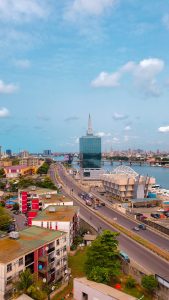
This is a guest blog by Elfredah Kevin-Alerechi, a journalist at Nigeria’s Peoples Gazette. For any inquiries, you may contact her at elfretutle.ei@gmail.com.
On 18th May 2021, the Nigerian government received the expected £4.2 million from the British Government, recovered from family members and associates of the oil-rich former Delta State Governor, James Ibori.
In the months preceding the return, the Ibori loot was widely debated among civil society and the public. The discussion was centered on the controversy surrounding the destination of the funds and the government announcements that the recovered loot might not be going to the state coffer where it was looted from – depriving the real owners of having access to the funds.
Practice of repatriation to state coffers
Nigeria has had a number of high-profile recoveries on the national level – most notably involving the former head of state Sani Abacha. However, there have also been a number of cross-border asset recovery cases concerning the governments of Nigerian states.
In the past, Nigeria has repatriated looted money back to the coffers of the state where the money was stolen from. For instance, in July 2009, the country’s Economic and Financial Crime Commission returned the N7 billion to the Bayelsa State government as part of the stolen black money by the then governor, late Diepreye Alameyesiegha.
Similarly, the Nigerian government also received and returned €300,000 back to the Plateau State coffers – an amount allegedly stolen by the former governor, Joshua Dariye. Both cases involved money reportedly misappropriated on the state level and both were returned from the United Kingdom. But the case of Mr Ibori might be an exception.
The Ibori Loot to end up in national coffers?
After signing the agreement with the UK government, the administration of the current President, Muhammadu Buhari, announced that the returned funds would not be going back to the Delta State coffers, where the money had originated. Instead, the £4.2 million Ibori loot will be used for the completion of the Second Niger Bridge, the Abuja-Kano Expressway, and the Lagos-Ibadan Expressway.
This statement has reignited debate among citizens including activists and human rights lawyers. Advocacy groups under the aegis of League of Professionals for Strategic Advocacy also threatened to challenge the decision of the government on the seizure of the recovered loot in court, whereas another local advocacy group, Niger Delta Democratic Union (NDDU), has already dragged the government to court.
In an open letter to the British High Commission, a coalition of anti-corruption civil society groups in Nigeria encouraged the use of third-parties to channel the funds to Delta state if there are concerns that the state government might not be trusted to manage them. The coalition highlighted that the Global Forum on Asset Recovery (GFAR) principles provide for the repatriation of assets to benefit the victims of corruption – in this case, the poor people of the Delta State.
The refusal of the federal government to return the recovered loot to the Delta state coffers will most likely have a negative impact on the people of the State, as the state government had already listed projects the money should be used for.
Concerns about re-looting
Citizens are also concerned that the strategy to redeploy the recovered loot to already budgeted federal government projects is another avenue to side-line the real owners of the funds, which will, in turn, give ways to officials working for the federal government to embezzle the funds.
Nigeria has a history of misappropriation of funds with those in authority giving deaf ears and blind eyes to corrupt practices exposed by journalists and civil society organizations. A number of allegations of corrupt practices have been linked to President Buhari, his aides, a former Army chief, allies and political associates among others but none has been investigated or faced prosecution. This led some to believe the Buhari-led government is only fighting the opposition party, pretending to fight the corrupt system.
While Nigeria’s asset recovery efforts are unprecedented worldwide, the recovery process often lacks transparency. In the case of the Ibori loot, Nigeria’s Attorney-General stated that the funds will not be going to the state coffers because the Delta government did not take part in the recovery of the funds, the law breached is a federal law, and the parties involved in the repatriation of the funds were national and not sub-national governments.
This comes at a time, when Delta communities, hosting oil companies have struggled with environmental pollution, and the government doing little to avert the effect on low-income earners. Therefore, many have called for the federal government to reconsider its decision and return the funds to the Delta state government coffers or to award projects in Delta state that will benefit its people.
Read our previous blogs on Nigeria here.
